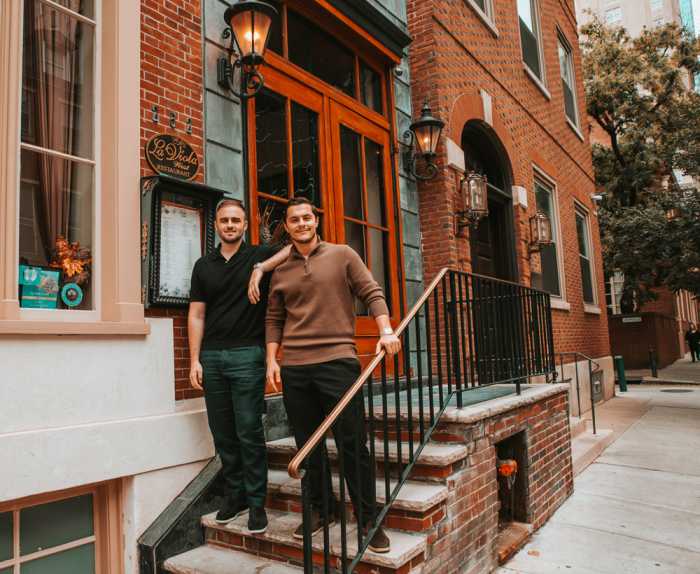By Luz Lancheros, MWN
Before the first decades of this century, it was a cultural imperative, almost universal, for adult children to become independent from their parents as quickly as possible. In fact, those who did not manage to do that were constantly criticized and/or caricatured (remember, for example, director Skinner and the toxic and dominant relationship with his mother in “The Simpsons”).
Only 8% of baby boomers, according to the Pew Research Center, remained in their parents’ home after the age of 25 in the United States, as they were more likely to find a job and a home of their own. By the Great Recession of 2008, these figures no longer existed: according to Census Bureau data, the number of people aged 25-34 still living with their parents between 2006 and 2010 was approximately at one million, increasing by as much as 12% to nearly 17% two years ago. There were several factors to this: a precarious labor market, the prices of real estate, unreachable for many young people in several countries and, what Dr. Jeffrey Jensen Arnett called “the emerging adulthood,” where the age to make decisions and be independent shifted from 18 to 29 years old.
This, also due to the years of formation, the decision to have a partner much later than previous generations and the debts acquired during the time of schooling—seven out of ten graduates owed an average of $30k for their studies, according to the Institute of Access and Success for the University in the United States.
But the pandemic changed everything. By July of this year, 52% of young adults resided with one or two parents, according to a Pew Research Center analysis of Census Bureau data. This population range has been particularly affected by the pandemic—in fact, one in nine adults say this is temporary—and factors such as job loss, campus closings and financial problems contributed to the situation. But should it be this dramatic, when perhaps it is simply one more way of living beyond cultural levels that no longer match the economic and social reality of many young people?
Between negotiation and support
Izzy Martinez is a young Spanish man who lives with his parents at the age of 33. Although he is now out of work, he has the support of both parents, with whom he takes turns in collaboration for household chores, shopping and sharing his spaces.
“With my parents everything is going well. They think it’s normal that I live with them, but without a job I can’t be independent. In fact, the other day I talked about it with my mother and she basically told me that if I was going to live with them always, there would be no problem,” he explained to Metro.
“When my mother worked and I didn’t, I cooked and did the shopping, it’s not that they demanded it, but it seems logical to me to do things at home when I have time and the others don’t. I do want to be independent when I can, but it is practically impossible to live alone here,” he explains when talking about the income situation in his country and the lack of work.
Like many young people, Izzy still counts on the help of his parents. In fact, in the United States, even before the pandemic, 6 out of 10 parents with children between the ages of 18 and 29 gave them financial assistance last year, whether for food, rent or bills. He believes that the cultural mandates of the past do not apply to the new reality:
“Each person has his or her own pace of doing things. And specifically, I have reasons of force majeure for not having worked until now, and it is quite difficult for me not to feel guilty for not being a productive member of society. If both my parents and I are fine like this, who is anyone to tell us what to do.”
On the other hand, the concept of emancipation is also being questioned. Psychologist Andrés Gamba from Areandina, Colombia explains that there are children who, although they do not live with their parents, depend on them and others who live with them are free economically and contribute, thus having a voice and a vote within the home.
“To be emancipated is to be autonomous and not be under the constant protection of an authority figure. In this sense, to achieve this, living with the parents, one must come to negotiate how the terms of the relationship will be, the rights and obligations and how the child can contribute to the home, as well as respect for their spaces,” the expert stated. “One can save for the future and improve the resume, in a world of work even more competitive to achieve the goals. On the other hand, many children can see how they reward the family for their efforts, which in turn become emotional and/or economic support and protection in crises such as unemployment, illness and other unforeseen events.”
“Kant said that coming of age meant making decisions and being responsible for them: it’s the same with adults. These decisions must be made and in the parent’s home this is achieved through coexistence, communication, negotiation and support. And, above all, it is important to leave the negative prejudices and stop saying that by doing so one is not successful,” Gamba concluded.
Metro sat down with Susan Newman, psychologist and parenting expert, author of “Under One Roof, Again,” to learn more.
Did the image of an adult living with parents change?
Yes, completely. Earlier, the adult was seen as an immature being and people wondered what happened. That stigma was still in place before the pandemic, but now it’s no longer possible to talk about it. A lot of people in their 30s, 40s, are coming back to their parents’ house due to situations that go beyond them. Among those is the economy.
There are also talks about late adolescence.
That may be true in some cases, but with the pandemic, it’s more a question of economics and not being able to afford rent and other expenses. The “no-growth” issue is one factor, but right now it’s not a big cause if you talk about the large number of adults coming back home.
What would you say to people over 30 who feel unsuccessful as they are now living with their parents?
That’s a difficult question. I would say: you have company. Instead of thinking of yourself that way, think of this as an opportunity to strengthen ties with your parents and get to know them as adults. You can discover interesting things about them and look at them as partners and supporters and be grateful that you have them and have somewhere to go. The situation is going to change, the pandemic will be brought under control and the economy too. And you have an opportunity to save, you have a safe place to be and you have, I hope, very supportive parents.
How can you avoid a toxic relationship with your parents?
To avoid being treated as if you were ten years old, you have to show that you are a responsible young adult. Help at home, be orderly. Don’t leave the dishes in the room or your clothes on the floor. Help in cooking, buy food. That can help them not to think of you as a child. You need to respect the limits imposed at home. There are things about your parents that will probably drive you crazy and they won’t change that, so use your sense of humor to get around it. And another thing is to lower your expectations about what it’s like to live with them or to live with them again. And the important thing is also to respect their rules, but also the rules of social distancing during the pandemic.




























